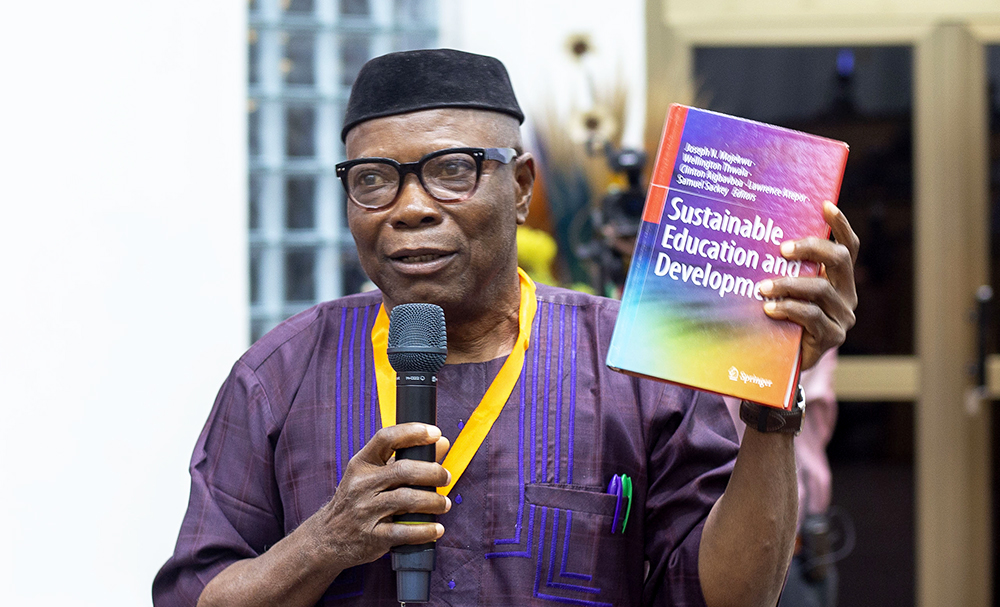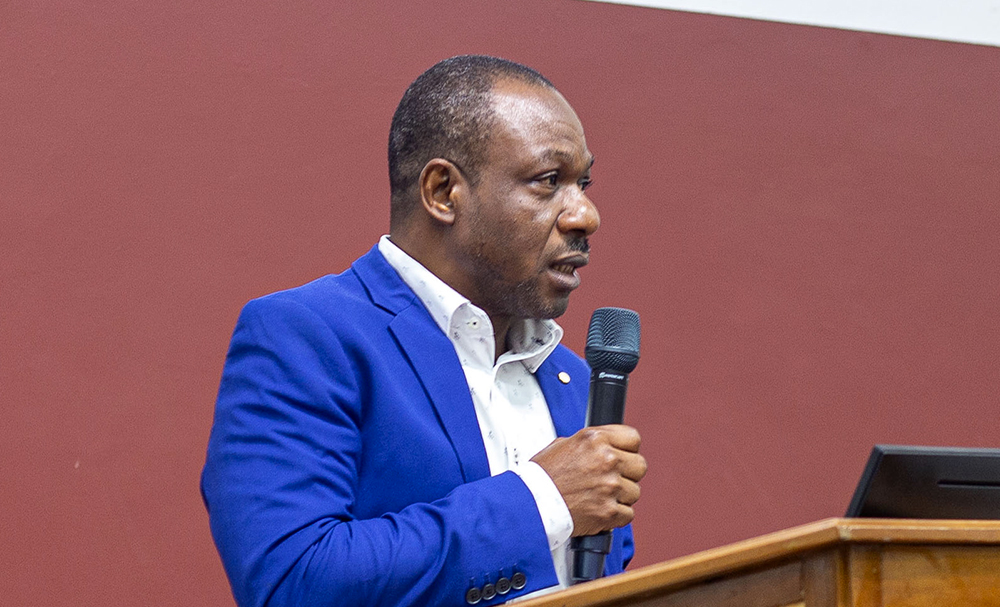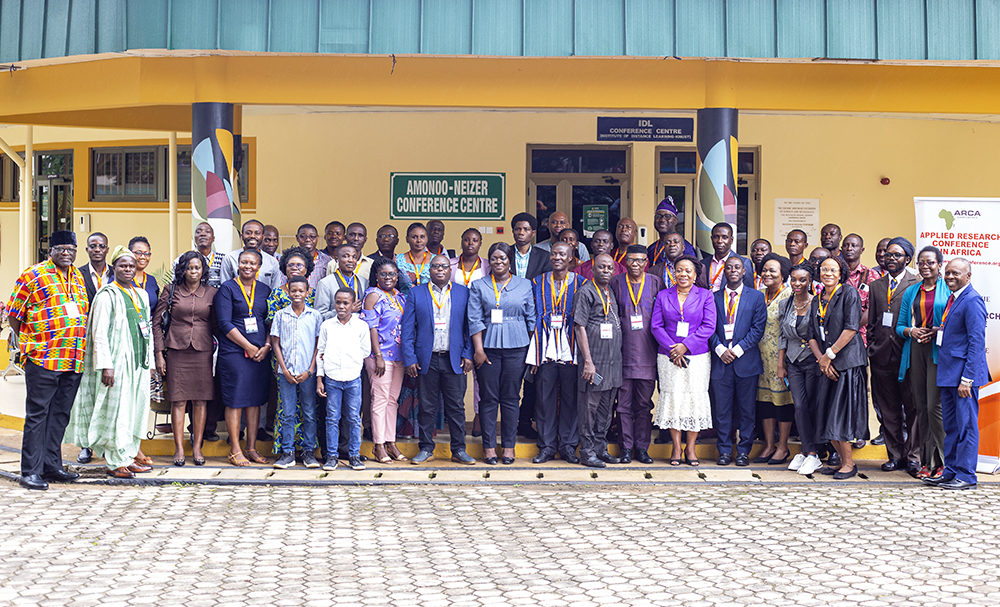The Kwame Nkrumah University of Science and Technology (KNUST), Kumasi has hosted the 11th Sustainable Education and Development Research Conference (SEDRC) 2022 from 24th to 27th August 2022 on the theme: “Build Resilient Infrastructure, Promote Inclusive and Sustainable Industrialisation and Foster Innovation”.
The SEDRC 2022 was both physically and virtually participated by participants from Ghana, Tanzania, South Africa, Nigeria, Kenya, Rwanda, and Oman. Researchers from Africa presented scientific papers in Engineering, Built Environment, Food Science, Hospitality and Tourism, Medicine, Statistics, Information Communication Technology (ICT), Applied Sciences, and Arts and Business.
Opening the Conference, the Chairman for the occasion, Professor Joseph N. Mojekwu of the University of Lagos Nigeria, said the theme for the conference is apt and instructive at this time when the world is recovering from the devastating effect of the COVID-19 pandemic. He noted that the phenomenal spread of the coronavirus from the city of Wuhan in China in the first quarter of the year 2020 to other parts of the world has been cataclysmic as it wreaked havoc on the entire world.

Professor Mojekwu continued that livelihood was brought to a total halt, as many businesses, organisations, educational institutions, churches, mosques, markets, and national and global economies were shut down. There was global tension in different parts of the world regarding the health, social and economic implications of the pandemic.
According to him, the fear of the unknown and the rising cases of the pandemic which led to massive deaths globally evoked a myriad of psychological tensions such as physical safety and health concerns, financial uncertainties, negative and conflicting news, cases of depression and mental challenges, job losses and economic recession to name a few. The Chairperson indicated that the emergence of the COVID-19 pandemic has brought about a paradigm shift from the old normal ways of doing things to the new modus operandi and modus vivendi globally.
Professor Mojekwu said just as the world is grappling with the aftermath of the COVID -19 pandemic, the Russian invasion of Ukraine rears its ugly head with its adverse implications for global food shortages and inflation, rise in global oil prices, social dislocation, deaths of thousands of people as well as massive destructions of social infrastructure in Ukraine.
He was of the view that the Russian-Ukraine war has repercussions not only for the developed countries but more for the developing countries especially, the African continent.
He said the problem of banditry and widespread agitations by the marginalised groups in different parts of Africa and beyond remains a big challenge to achieving resilient and sustainable social infrastructures. The employment challenge fuelled by a lack of jobs and the low level of industrialisation in Africa has led to massive illegal migration of job seekers and brain drain to the West and European countries in search of greener pastures.
Professor Mjokwu stated that the African continent has been lagging in the areas of social infrastructure, industrialisation as well as innovation with its concomitant high rate of poverty. Again, Africa is lagging in the areas of education, research, and innovation. He, therefore, advocated for a united voice to push governments to invest massively in education to achieve the desired objectives.
He further called for concerted efforts on the part of the governments in Africa, academia, research institutes, and professional bodies to put in place the culture of resilient infrastructures, inclusive and sustainable industrialisation, and to foster innovation for sustainable development of the African continent.

In his keynote address, Provost of the College of Art and Built Environment, Professor John Tia Bugri, said the United Nations adopted the resolution dubbed “Transforming our World: The Agenda 2030 for Sustainable Development.” He explained that the Agenda 2030 outlines 17 Sustainable Development Goals (SDGs) and 169 targets as a universal roadmap to eradicate poverty, the greatest global challenge, by 2030. Among the seventeen (17) goals, Goal 9 directly addresses Resilient Infrastructure, Sustainable Industrialisation, and Innovation.
Professor Bugri said education is a powerful tool by which economically and socially marginalised adults and children can lift themselves out of poverty and participate fully as citizens of their countries. He continued that education needs more investment because skills that come from education are crucial for personal well-being and socio-economic transformation and development.
“The more educated a society is, the better it is in every facet of life. The benefits of a well-educated and skilled society at higher levels are enormous. This generally results in a healthier and more tolerant society, makes people understand what makes the world, helps to create a ‘modern’ society, develops a well-skilled workforce, reduces levels of crime, and creates a participatory citizenry” He added.
According to Professor Bugri, war-affected countries are extremely poor economies, and the task of infrastructure rehabilitation and reconstruction is beyond the financial capacity and capabilities of the governments. And if countries are not at peace and guerrilla activities and banditry make the countries unsafe, private investors are unlikely to invest in infrastructure projects. This will require, however, an adequate and conducive legal and regulatory framework for the affected countries to be able to attract private investment.
Professor Bugri said the Conference is taking place at a time when the Coronavirus pandemic has undoubtedly taken a great toll on the educational architecture and ecosystems of developed and developing countries. It is also taking place at this great Institution which has received global recognition for its delivery of quality education. Indeed SDG 4 emphasises quality education for all, and education is argued as the pivot around which all other 16 SDGs revolve for us to be able to transform our world for the better by 2030.
He hoped at the end of the Conference, innovative solutions to developmental challenges and problems will come up as well as improved infrastructure services to improve growth.
President of the DataLink Institute of Business and Technology, Ghana, Professor Smile Dzisi, called for more support for women entrepreneurs and for encouragement for women to venture into male-dominated sectors of the economy to promote gender equality.

















